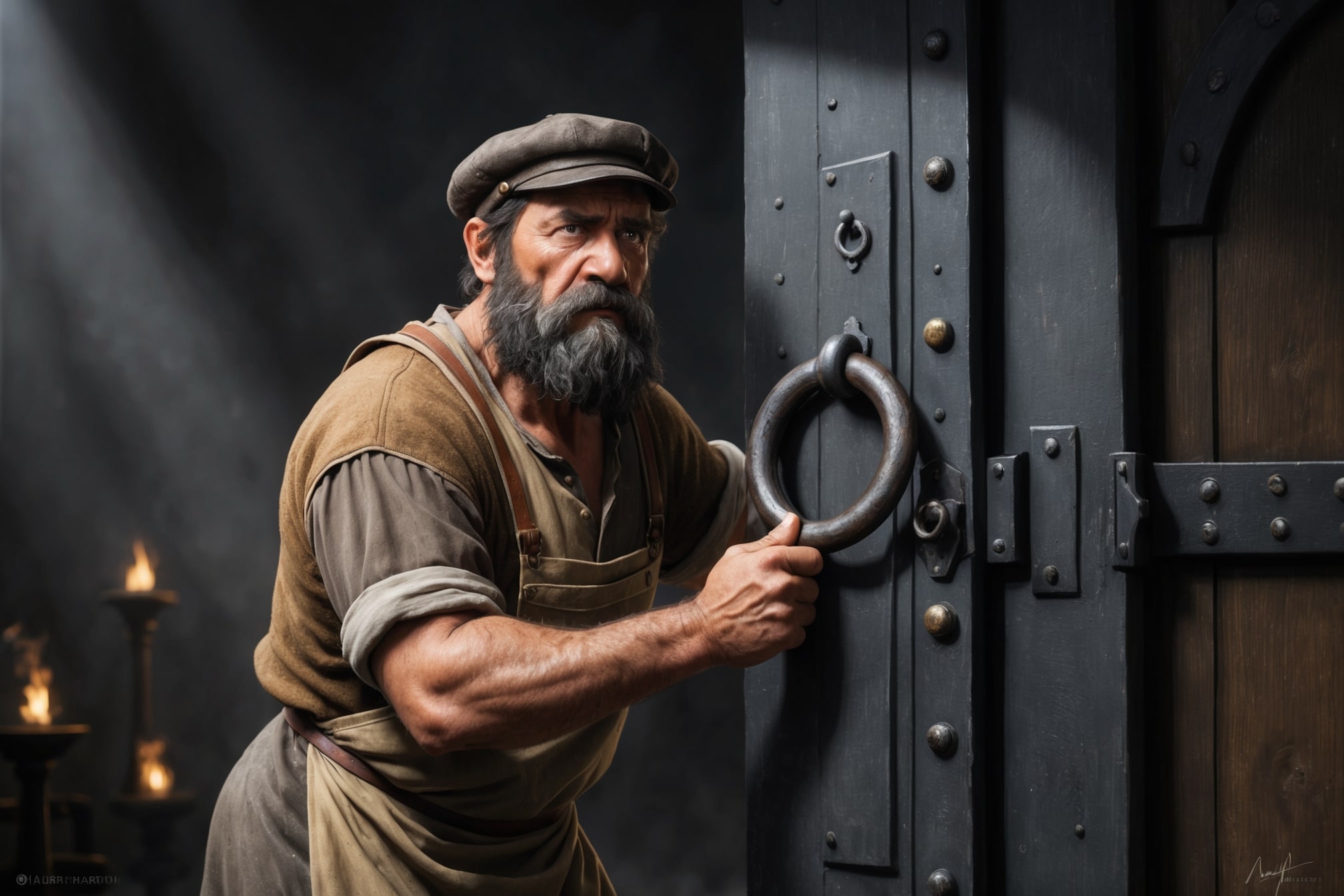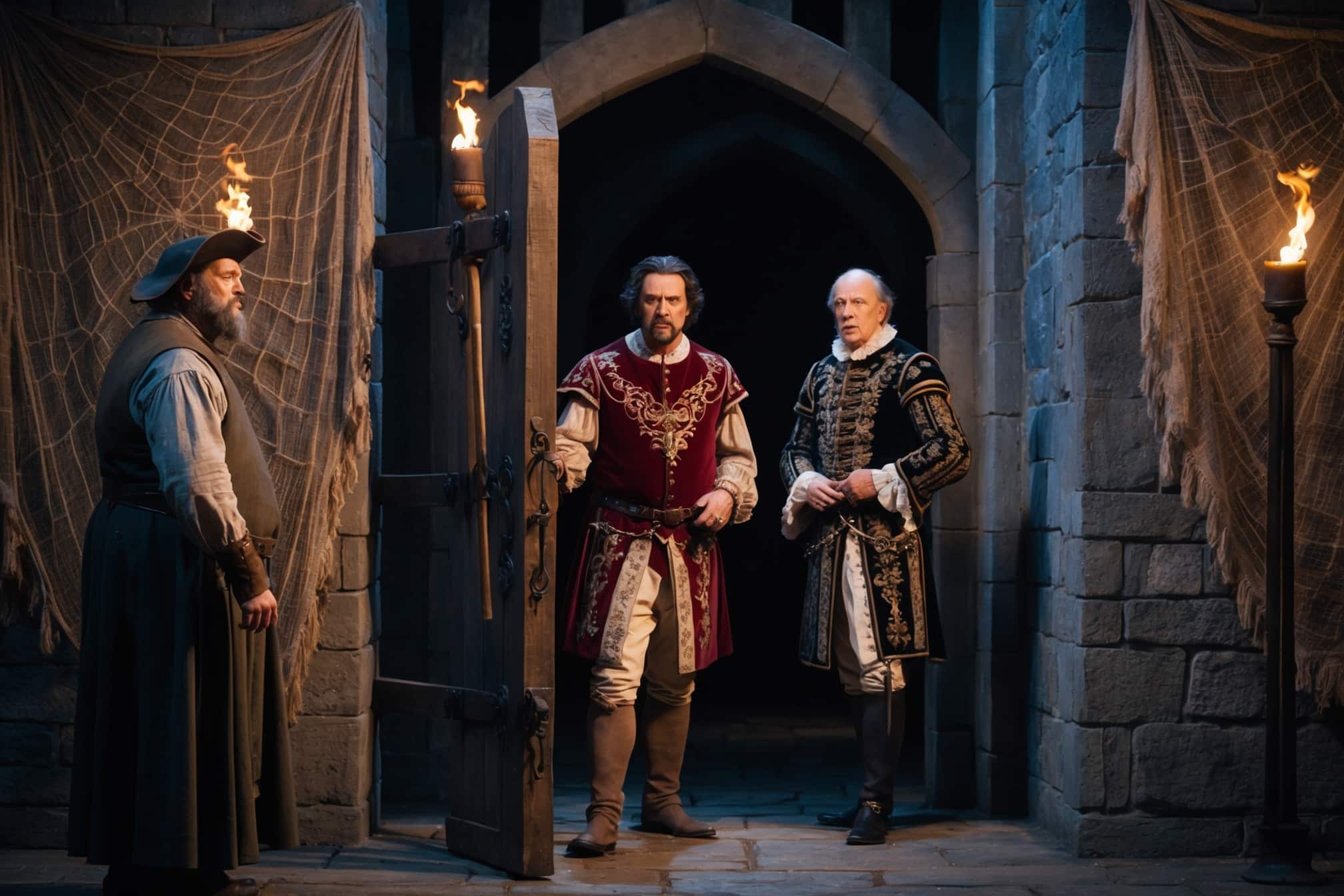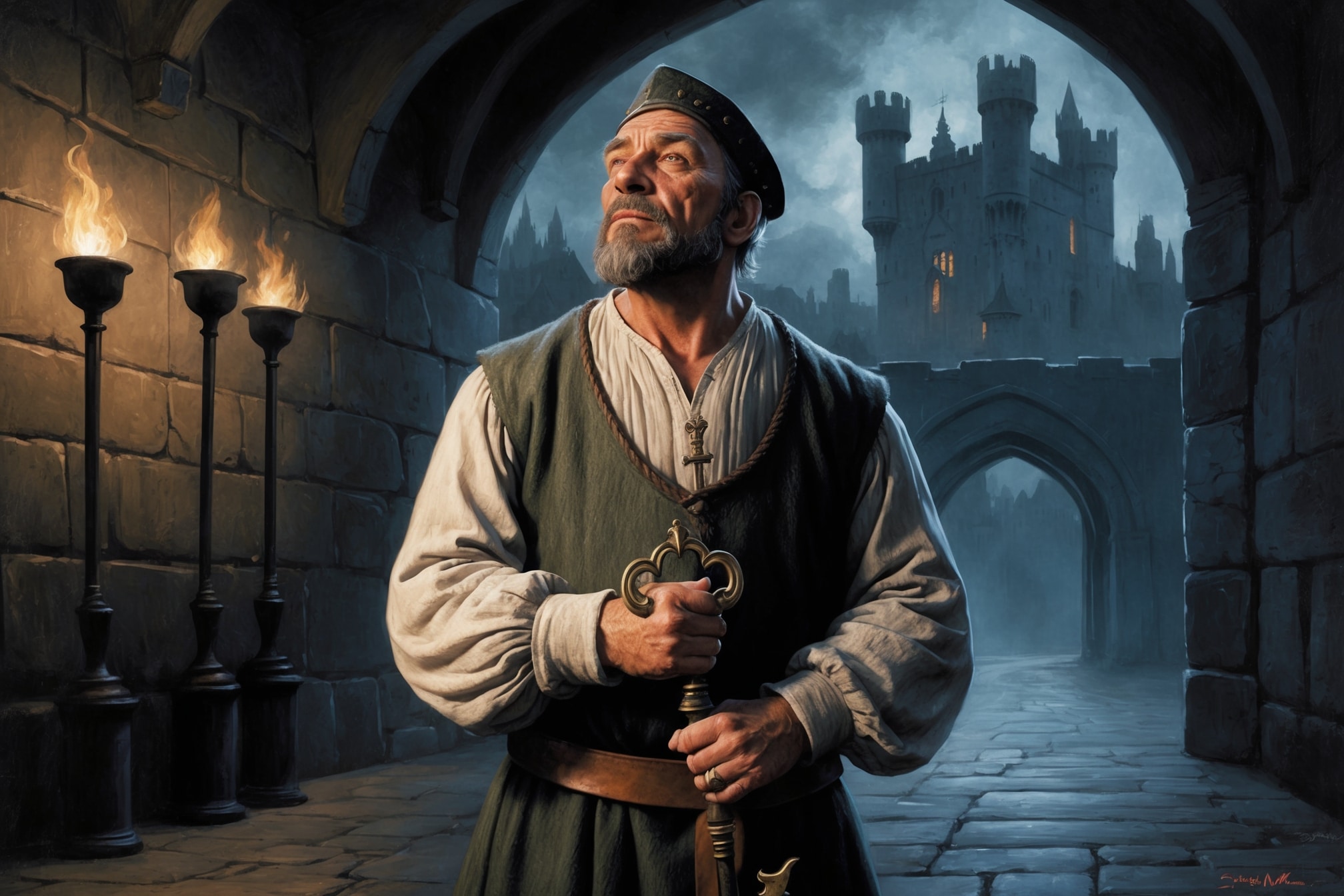Macbeth is a master of character building and has created many iconic characters but among them, who is the Porter in Macbeth? The Porter in Macbeth is a minor character who serves as the gatekeeper to Macbeth’s castle. He appears in Act 2, Scene 3, immediately after Macbeth has murdered King Duncan. We know him by his quote,
“Knock, knock, knock! Who’s there, i’ the name of Beelzebub?”
We get to see Porter’s dark humor as he is referencing Beelzebub who is a demon associated with the devil. This is a quite that says a lot about his characteristics and his role in the play Macbeth. His actions are full of comedy that provide comic relief to the audience.
His speech represents the then political tensions at the time of Shakespeare. The role of Porter is a contrast to the themes of treason and guilt in the play Macbeth.
Who is the Porter in Macbeth?

Or we might ask, Who is the Drunk in Macbeth? The porter is referred to as a drunk. Porter is a minor but significant character in the play Macbeth. He functions as a gatekeeper for Macbeth’s castle. He is somewhat similar to Seyton as per social status although he does not take part in any roya activity. We get to know Porter first in Act 2 and Scene 3, just after Macbeth kills King Duncan. His role in the play is short but very significant.
Comic Relief
Macbeth is intense and dark but Porter provides comic relief to the play. He is the complete opposite of other characters and offers the audience a breathing space in all the tensions in the play.
Imagery
Porter himself imagines him as the gatekeeper of hell. It is largely symbolic given that crimes are being committed inside and outside of the castle. Here is what he says:
“Here’s a knocking indeed! If a man were porter of hell-gate, he should have old turning the key.”
These lines suggest that Macbeth’s castle has become a place of damnation.
Porter Introduces Other Characters
Porter introduces Macduff and Lennox to the castle opening the gate just after the monologue. Eventually both Macduff and Lennox discover that the King is dead.
Although his appearance is brief, he plays a significant part in developing the theme and we know from his short appearance who is the Porter in Macbeth.
Porter’s Contribution

The first appearance of Porter happens in Act 2, Scene 3. It was during the early morning hours after Macbeth murdered King Duncan. It takes place at the gate of Macbeth’s castle and he being drunk stumbles to open the door. At that moment, he thought himself to be the gatekeeper of hell, greeting imaginary sinners who sought entry. He later involves himself in other comic dialogue involving a framer who hanged himself and a tailor who stole cloth. All these characters are symbolic of the play which is characterized by greed and betrayal.
We often wonder who is the porter is referring to in Macbeth? Shakespeare’s created character, Porter, is a classic example of comic relief. He often used these types of characters to provide respite from the intense emotion of the play. However, his character here is full of a deep undertone as it suggests the moral state of the castle after Duncan’s murder.
Porter’s Symbolic Role
Gatekeeper to Hell
Porter imagines himself to be the Porter of Hell Gate. This metaphor shows Macbeth’s castle as a place of damnation. The scene with Porter also predicts the chaos that the people of Scotland are going to face after the fall of their King Duncan. The porter also contributes to the gothic theme of the play with his short remarks.
Contribution to the Play
Porter’s actions subtly comment on the themes of guilt and damnation in Macbeth. The knocking at the hell gate symbolizes Macbeth’s gullible conscience. Macbeth is full of regret for murdering Duncan and he eventually succumbs to death because of this. The Porter scene serves as a reminder of Macbeth’s actions that pave the way to his inevitable ruin.
Porter’s interaction with other characters

When Porter finally opens the door he met both Macduff and Lennox. They are unaware of the horrific events that took place before their arrival. Porter’s lighthearted banter eventually turns grim after the discovery of the brutal murder of the King by his son Macduff. The interaction turns the play from dark humor to a critical tone. Porter acts as the bridge between comedy and tragedy.
Although Porter is a sevant and insignidicant character his role as an observer is full of irony. With his drunken and exaggerated description of the sinners Porter unknowingly comments on the play’s darker themes. He is outsuaded by the noble affairs and his observation provides a unique perspective on the tragedy. Porter’s presence adds depth to the play and through his actions, we eventually get to see who is the Porter in Macbeth.
Porter’s contribution to the theme
Although Porter is a minor character in the play his reference to hell and sinners reflects the broader themes in Macbeth. His words reflect the corrupting power of ambition that drives Macbeth to lose morality and kill people. Porter imagines Macbeth’s castle as hell, which indicates Macbeth is evil. A drunkard like Porter undermines the damning nature of Macbeth’s actions and the price that Porter Macbeth is going to pay for them.
Porter’s action in the play is brief but his actions influence the overall atmosphere of the play. His actions blend both humor and horror into one and create a jarring effect. His actions relieve the tension for a while but they intensify the horror that takes place after a moment. Eventually, the play turns into a bloody demonstration of power resonating with Porter’s imagination to hell.
Porter’s Legacy in Macbeth

Cultural impact of Porter
Some characters leave behind a deep mark with a single line of dialogue or their brief appearance, just like that Porter is a character of this sort. He appears briefly in the play but he has become one of the most memorable and frequently discussed characters in the play. Porter’s dark humor makes him a subject of analysis in both the academic and theatrical fields.
For example, Orson Welles’ film adaptation of Macbeth presents the character Porter with a nighmarish quality that contributes to the play’s atmosphere of constant stress. Later, there was another significant film adaptation of the character of Porter. In Roman Polanski’s 1971 version of Macbeth’s film version he portrays Porter with a grotesque and unsettling demeanor.
Symbol of the Common Man

Porter is a common man just like us who is involved in some terrible events. Through his presence, we get a human perspective on what is happening around us. His presence works as a contrast with the noble figures around him. Through this character, Shakespeare wanted to show that even the most humble individuals are affected by the actions of those in power.
Final thoughts
Now we know who is the Porter is in Macbeth. The porter scene is very significant as it shifts the play’s tone from humor to seriousness. Porter’s presence is in contrast to the tragedies that follow. Porter acts as a symbolic figure whose role extends to the themes of the play. He compares Macbeth’s castle to the Hell Gate. This foreshadows the tragic end of Macbeth because of his unchecked ambition. Although he is a minor character his presence is crucial in the play. The Porter shows the moral complexities in Macbeth and his short presence paved the way for the play. Shakespeare crafts this character by mixing humor with horror to leave a lasting impression on the audience.


